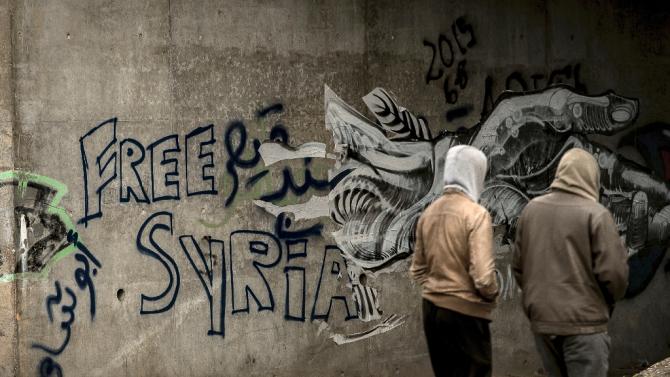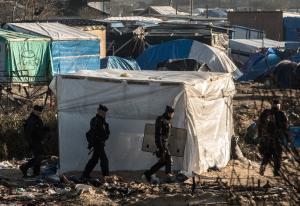Date: Fri, 12 Feb 2016 22:33:21 +0100

Calais (France) (AFP) - Local French government authorities said Friday they want to move up to 1,000 migrants living in the notorious "Jungle" camp in the port town of Calais.
The presence of thousands of migrants in the camp who are desperately trying to reach Britain has become a political hot potato both within France and between Paris and London.
Local authorities have been trying to persuade migrants to move out of the camp as conditions worsen in the winter.
The government's local representative, Fabienne Buccio, said: "The time has come to move on, no one must live in the southern part of the camp, everyone must leave this section."
She estimated that between 800 and 1,000 migrants would be affected.
Buccio said government representatives would visit migrant communities on Monday "to explain" the plans.
"We will give them a week to take up places that will be made available," she added.
They could be housed in a new centre of converted shipping containers which was set up this winter and can house up to 1,500 migrants, or in other centres around France.
Some 4,000 migrants, most of them from North Africa, the Middle East and Afghanistan, live in the makeshift camp from where they launch their often desperate efforts to reach Britain, across the Channel.
In January some 600 migrants were evacuated from a strip of 100 metres near a main bypass for safety reasons and authorities now want to reduce the massive camp by about half.
In addition to the heated and electrified shipping containers, some 500 women and children are being housed in a separate centre.
"In Calais we can now house 2,000 people in dignified conditions. We still have people who are living in conditions which are not dignified. This cannot go on and it gives a very bad impression of the region," said Buccio.
However, efforts to move the migrants have faced resistance.
Many migrants have been opposed to moving into the containers -- which requires their palm prints to be taken to come in and out of the enclosure -- fearing it could impede their efforts to reach Britain and apply for asylum there.
Christian Salome, of the migrants association "Auberge des migrants" described the decision to empty out more residents of the camp -- they say up to 2,000 will have to be moved -- as "a dreadful step backwards."
"Where are these 2,000 people going to go? If they don't have a solution they will go back into town. And making them move in the middle of winter is totally contemptuous of refugees of war," he said.
